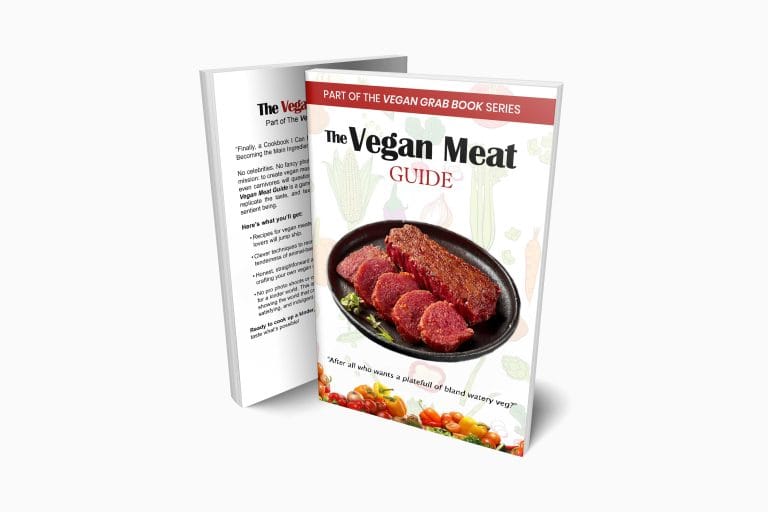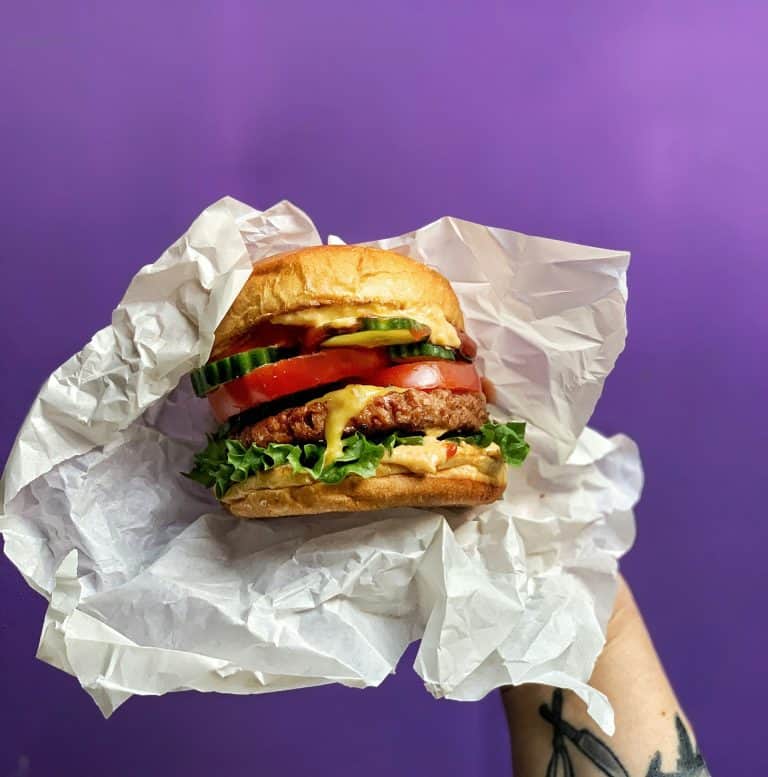Can You Freeze Vegan Cheese
Can You Freeze Vegan Cheese: Answered.
When it comes to preserving food, the freezer is a powerful ally, and many are curious about whether this extends to plant-based alternatives like vegan cheese.
With the rise of veganism, the variety of vegan cheeses available on the market has expanded, prompting the question of how they fare when frozen.
Vegan cheese can indeed be frozen, although the process may have varying effects on its texture and taste, making it more suitable for cooking purposes rather than direct consumption after thawing.
The ability to freeze vegan cheese provides a convenient option for extending its shelf life and reducing food waste. However, different types of vegan cheese, such as hard and soft varieties, may respond differently to freezing.
Hard vegan cheeses generally freeze better than soft ones, and the defrosting technique can also play a critical role in maintaining the quality of the cheese. Proper storage and handling before and after freezing vegan cheese are crucial to ensure that it remains safe and enjoyable to eat.
Key Takeaways
- Vegan cheese can be successfully frozen.
- The texture and quality of vegan cheese after thawing may vary depending on the type.
- Proper storage and careful thawing are important for maintaining the safety and taste of frozen vegan cheese.
Understanding Vegan Cheese
Vegan cheese has garnered attention as a plant-based alternative to traditional dairy products. This section explores its composition and the possible advantages of freezing.
Composition and Types
Vegan cheese is a dairy-free product made primarily from plant-based ingredients such as nuts, coconut oil, soya protein, and various starches. Each source provides a distinct texture and flavour profile.
For example, cashew-based cheeses often have a rich, creamy consistency, while those made from tofu can resemble the texture of firm dairy cheeses.
Types of vegan cheese include, but are not limited to:
- Mozzarella: Ideal for melting over pizzas and pastas.
- Cheddar: Offers a sharper taste for sandwiches and sauces.
- Cream Cheese: Typically used in spreads and dips.
- Parmesan: Grated over dishes to add a nutty flavour.
- Feta: Crumbled onto salads for a tangy zest.
These varieties each possess unique characteristics in terms of water content, firmness, and adaptability for different dishes.
Benefits of Freezing
Freezing vegan cheese can be advantageous for extending its shelf life, especially since plant-based cheeses may have a shorter lifespan than their dairy counterparts. Here are specific benefits:
- Preservation: Reduces spoilage by inhibiting bacterial growth.
- Convenience: Provides on-demand access to a variety of flavours without frequent shopping trips.
It’s essential to note that due to differences in water content and textures, some vegan cheeses may undergo changes in taste and texture upon freezing and thawing. As such, frozen vegan cheeses are best used within cooked dishes where such alterations are less noticeable.
Freezing Vegan Cheese
Freezing vegan cheese can help extend its shelf life; however, the taste and texture may be altered post-defrost. When considering whether to freeze vegan cheese, understanding proper techniques and which types withstand freezing best, is essential for optimal results.
Proper Freezing Techniques
Vegan cheese should be frozen in a manner to minimise changes in texture. For best results, one can either shred, grate, or slice the cheese before freezing. Placing the cheese in an airtight container or a sealed plastic bag with as much air removed as possible helps prevent freezer burn and food spoilage.
- How to Freeze Vegan Cheese:
- Shredded/grated: Freeze in small portions for easy usage later.
- Slices: Place parchment paper between slices to prevent sticking.
- Blocks: Avoid freezing in large blocks as they can become crumbly.
Best Types for Freezing
Hard vegan cheeses tend to freeze better than soft varieties, experiencing fewer changes in texture. Whether store-bought or homemade, harder types maintain their integrity and are more versatile in various dishes post-freezing.
- List of Vegan Cheeses Best for Freezing:
- Hard block cheeses
- Firm grated cheeses
- Semi-hard slices
Labelling and Packaging
Proper labelling and packaging are crucial to ensure the quality and safety of frozen vegan cheese. Use airtight containers or plastic wrap for packaging and label each package with the type of cheese, date of freezing, and intended use to keep track of storage times and prevent spoiling.
- Packaging Tips:
- Ensure containers are airtight to retain flavour.
- Label with content and freeze date to monitor freshness.
In the Refrigerator
Vegan cheese is best kept in the refrigerator, where it should be stored in an air-tight container or tightly wrapped to prevent it from drying out. This also helps to protect against the accumulation of bacteria that can cause the cheese to deteriorate. The shelf life of refrigerated vegan cheese usually ranges from one week to nearly a month, depending on the specific product and whether it has been opened.
In the Freezer
When freezing vegan cheese, one ought to divide it into portions that will be used in one sitting, thus avoiding the need to refreeze. To freeze vegan cheese:
- Prevent freezer burn: Wrap the cheese tightly to avoid exposure to air and formation of ice crystals.
- Defrosting: Thaw the cheese in the refrigerator to maintain its quality.
- Shelf life: Vegan cheese can generally be frozen for up to 6 months, though texture and flavour may be affected after defrosting.
The process of freezing can extend the shelf life considerably, but it’s imperative to note that some changes in quality, such as texture variations, are to be expected once defrosted.
Thawing and Usage
Before incorporating frozen vegan cheese into recipes, it is essential to handle the thawing process correctly, as it can affect the texture and taste. Understanding the proper techniques for defrosting, as well as knowing which types of vegan cheese are suitable for specific culinary applications, is crucial.
How to Thaw Vegan Cheese
To thaw vegan cheese effectively, individuals should transfer the cheese from the freezer to the refrigerator and allow it to defrost slowly, typically over several hours or overnight. This method is ideal for preventing the growth of microorganisms and helps maintain the quality of both soft and hard cheeses.
Alternatively, if one is in a hurry, a microwave can be employed for a quick defrost. Place the vegan cheese on a microwave-safe plate and use a lower power setting to microwave for approximately 40 seconds.
It’s important to note that vegan cheese should be removed from its packaging before using this method and should not be left on the counter to thaw as this could lead to bacterial growth.
Cooking After Defrosting
Once defrosted, vegan cheese can be utilised in various cooking preparations. It should be noted, however, that refreezing vegan cheese is not recommended as it can further degrade its texture.
For cooking purposes, such as making a cheese sauce or cheese topping, vegan mozzarella, vegan ricotta, and vegan cheddar are versatile options that melt well, making them suitable for pizzas, enchiladas, or grilled sandwiches.
Vegan cheese slices and semi-soft cheeses are best used when they are still slightly chilled, which helps maintain their structure when slicing or shredding.
Vegan cream cheese and other soft vegan cheeses, on the other hand, are excellent for spreads or dips and do not necessarily require thawing depending on usage. If used in a heated dish, they can be incorporated in a semi-frozen state to blend smoothly into recipes.
Quality and Safety Considerations
When freezing vegan cheese, consumers should be aware of potential changes in quality, particularly in terms of texture and taste. These alterations can vary by type, such as vegan cheddar or cream cheese, and influence the final product’s suitability for various culinary uses.
Changes in Texture and Flavour
Freezing can cause vegan cheese to undergo textural changes, affecting quality. For instance, vegan cream cheese may become crumbly or less creamy upon thawing.
Taste changes are also frequent; once-frozen vegan cheeses, like a dairy-free cheddar alternative, might experience a slight alteration in flavour, potentially turning a bit sour or less pronounced.
Various ingredients used in brands like Violife vegan cheese play a role in how well they freeze and retain their original sensory profile.
Preventing Food Spoilage
To combat food spoilage, one must carefully manage the freezing and thawing process for vegan cheeses. Due to the absence of dairy, dairy-free alternatives may have a different spoilage rate compared to traditional cheese.
It is crucial to ensure that vegan cheese is stored in an airtight container or freezer bag to avoid contamination and preserve its quality. Moreover, once thawed, the vegan cheese should not be refrozen, as repeated temperature changes can increase the risk of spoilage and degrade its taste and texture.
Tips and Tricks for Freezing Vegan Cheese
When it comes to freezing vegan cheese, there are a few key steps to ensure the product retains its quality.
- Shredding: It’s recommended to shred, grate, or slice the cheese before freezing. This not only makes it easier to thaw but also helps maintain consistency and makes it simple to use in recipes later on. Here’s a guide on how to prepare vegan cheese for freezing.
- Portioning: Freeze in usable portions. You can freeze shredded vegan cheese in amounts you’ll likely need for cooking, which avoids wastage.
- Packaging: Use a vacuum sealer for best results, as it removes air and prevents freezer burn. If a vacuum sealer isn’t available, ensure the cheese is packed in airtight containers or freezer bags, squeezing out as much air as possible.
- Labelling: Always label your packaging with the date and type of cheese. This helps track how long it’s been stored and differentiates various vegan cheese types.
- Unopened Vegan Cheese: If the cheese is unopened, you can freeze it in its original packaging. Still, it is beneficial to wrap it in an additional layer of protection to mitigate the risk of freezer burn.
These tips for freezing vegan cheese will help preserve its flavour and texture, making for a smoother cooking process when it comes to utilising the cheese post-thaw. Remember, while freezing can extend the shelf life, the texture might change slightly, making it best suitable for cooked dishes.
Frequently Asked Questions
When dealing with vegan cheese, consumers often have numerous questions regarding its preservation. The ability to freeze vegan cheese extends its usability, yet a number of considerations must be taken into account to maintain its quality.
How long is it possible to keep vegan cheese frozen before it deteriorates?
Vegan cheese can be kept frozen for up to three months before any notable changes in texture or flavour occur. It should be stored properly in air-tight containers or freezer-safe bags to minimise the risk of freezer burn.
Is it safe to freeze vegan cheese varieties such as Cathedral City or Violife?
Most commercial vegan cheeses, including brands like Cathedral City or Violife, can be safely frozen without health concerns. However, the texture may be affected, which could impact how they are best used once thawed.
What is the optimal method for extending the shelf life of vegan cheese?
To maximise the shelf life of vegan cheese, it should be stored in the freezer immediately after purchase if not intended for immediate use. It is advisable to split the cheese into usable portions, wrap each portion tightly, and seal in freezer bags to prevent air exposure.
Are there certain types of cheese that should not be subjected to freezing?
While many vegan cheeses freeze well, varieties that have a high moisture content or are particularly soft, such as cream cheese, may not freeze as successfully. The freezing process can alter their texture more dramatically, making them less ideal for freezing.
Once refrigerated, what is the typical longevity of vegan cheese?
Refrigerated vegan cheese typically has a shelf life of around 7 to 10 days once opened. Storage conditions and the specific type of vegan cheese can cause this duration to vary.
Can vegan butter undergo freezing without compromising quality?
Freezing vegan butter is generally considered acceptable and does not significantly affect its quality or usability. Similar to vegan cheese, proper storage methods are key to maintaining its integrity during freezing.
Conclusion
Freezing vegan cheese is certainly possible, but individuals should remember that not all vegan cheese is created equal. The freezing process may lead to a change in texture and flavour depending on the type of vegan cheese in question.
It’s generally recommended to freeze hard vegan cheeses over softer varieties, as they tend to retain their characteristics more effectively post-defrosting.
For those intent on freezing, preparing the cheese in a suitable form such as grating or slicing before freezing can yield better results than freezing an entire block. This preparation can make the vegan cheese more versatile for cooking after thawing.
When one decides to thaw vegan cheese, it’s usually best used in cooked dishes. Examples of suitable applications include cheese toppings on pizza, mixed into enchiladas, or melted in a grilled cheese sandwich. One should accept the possibility of a different texture or a slight change in taste.
The decision to freeze vegan cheese should be made with the understanding that while it can extend the life of the product, it may also alter its original qualities. If one’s planning on consuming the cheese in its raw state, freezing it might be less than ideal.
By adhering to proper freezing techniques, the longevity of vegan cheese can be extended without significant compromise to its utility in various recipes. This can lead to less food waste and more economical household management, making vegan cheese freezing a practical solution for non-dairy cheese enthusiasts.
Although these are general suggestions, please always check the product label for specific storage instructions!
Why not browse our range of delicious vegan cheeses.







